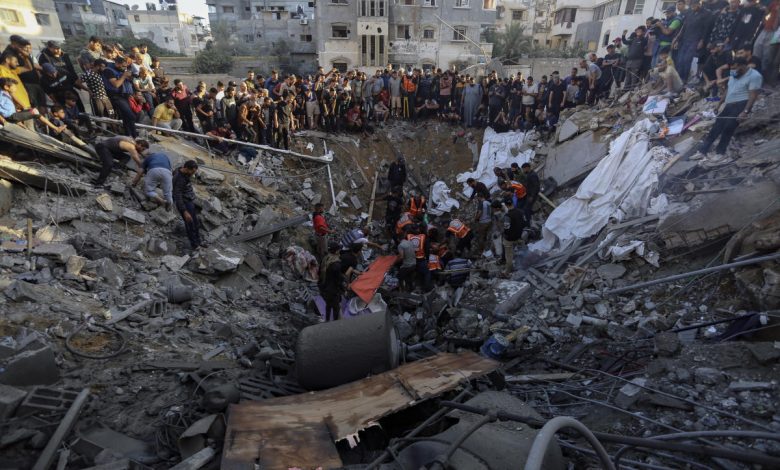
The rebuilding process in the Gaza Strip following 15 months of Israeli bombardment will “take an awful lot of time” despite the promised surge in humanitarian deliveries, a UN official in Gaza has warned.
“We’re not just talking about food, healthcare, buildings, roads, infrastructure. We’ve got individuals, families, communities that need to be rebuilt,” Sam Rose, acting director of the UN agency for Palestinian refugees (UNRWA) in Gaza, told the BBC.
“We’re expecting a major uptick in the volume of aid that’s coming in, and of course it’s far easier for us to go and collect that aid because many of the problems that we have faced so far in the war go away when the fighting stops,” Rose said.
But he also stressed that “we have to get away from thinking of people’s needs in Gaza as a function of the volume of aid”.
“Every person in Gaza has been traumatised by what’s gone on. Everyone has lost something. Most of those homes are now destroyed, most of the roads are now destroyed,” he added. “It’s going to be a long, long process of rehabilitation and rebuilding.”
The World Health Organization’s regional director, Hanan Balkhy, meanwhile said it had a 60-day plan to get Gaza’s health system back on its feet to meet the population’s urgent needs and prioritize care for the thousands of people with life-changing injuries.
The plan includes repairing Gaza’s hospitals – half of which are out of service and the others are only partially functional – setting up temporary clinics in the hardest-hit areas, addressing malnutrition and controlling disease outbreaks.
Most of Gaza’s 2.3 million population has also been displaced multiple times, 60% of buildings are estimated to be damaged or destroyed, the healthcare, water, sanitation and hygiene systems have collapsed, and there are severe shortages of food, fuel, medicine and shelter.
In October, the UN-backed Integrated Food Security Phase Classification (IPC) estimated 1.84 million people across Gaza were experiencing high levels of acute food insecurity, and that 133,000 people were facing catastrophic levels, which can lead to starvation and death.
The following month, an IPC committee warned that there was a strong likelihood that famine was “imminent” in some areas of northern Gaza.
Before the ceasefire, the UN said the besieged northern towns of Jabalia, Beit Lahiya and Beit Hanoun had been largely cut off from food assistance since the Israeli military launched a ground offensive and siege in October according to the Quds News Network.


 (@donyaihsan)
(@donyaihsan) 

 Commander of the
Commander of the 
 BREAKING: Israel is BURNING DOWN due to HUGE FIRES in Jerusalem!
BREAKING: Israel is BURNING DOWN due to HUGE FIRES in Jerusalem!  Israeli media says: Today's fires are the largest in "Israel's history."
Israeli media says: Today's fires are the largest in "Israel's history."


